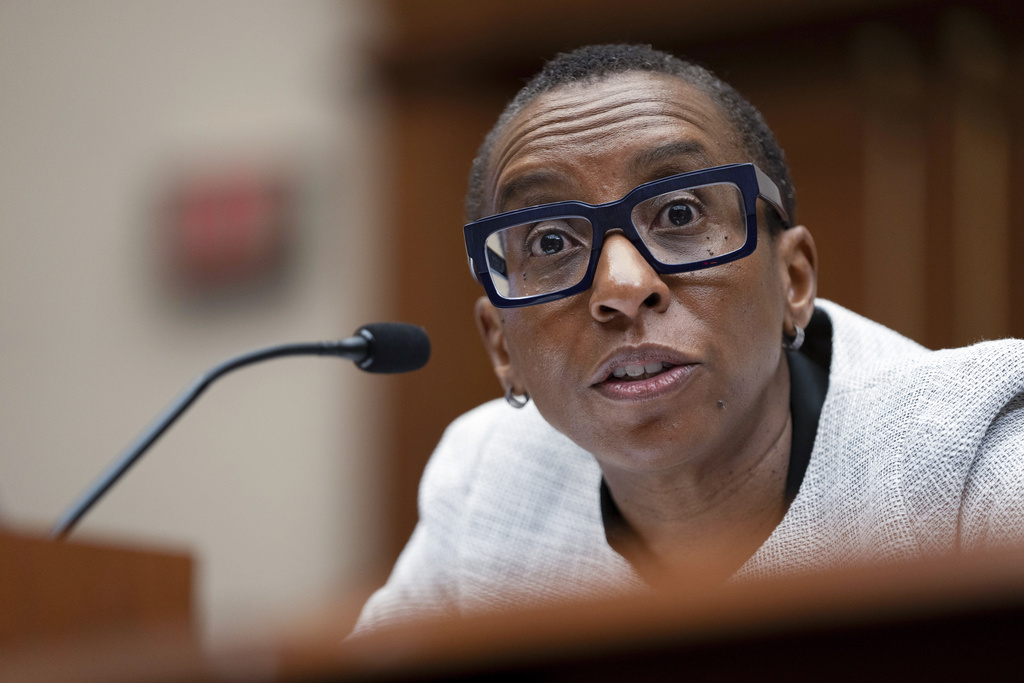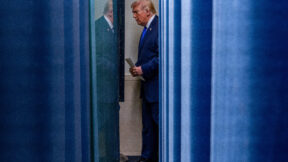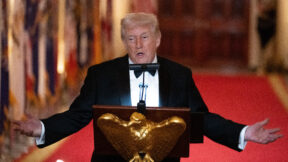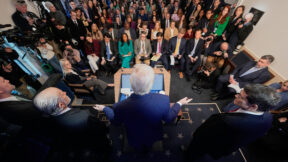Harvard Crimson Concludes University President’s Plagiarism Violates School’s ‘Current Policies’ Around ‘Academic Integrity’

AP Photo/Mark Schiefelbein
The Harvard Crimson critically reported this week on the allegations of plagiarism dogging Harvard President Dr. Claudine Gay and concluded that the school’s leader did not pass the same level of “academic integrity” required of its students.
In an article detailing the allegations against Gay, the Crimson noted it “independently reviewed the published allegations” and concluded that Gay’s work appeared to “violate Harvard’s current policies around plagiarism and academic integrity.” The student-run Harvard newspaper has been notably defensive of Gay, publishing an editorial titled, “Harvard and President Gay Must Not Yield.”
Harvard revealed this week that it been aware of the allegations and began an investigation into them back in October. The allegations became front-page national news after hard right activist Christopher Rufo and The Washington Free Beacon published articles about them on Sunday and Monday, respectively.
Gay has been under intense scrutiny and facing calls for her resignation since a House hearing on anti-Semitism resulted in crushing criticism that led to the president of U Penn, who testified alongside Gay, to resign. Gay apologized for any hurt she caused the students on Harvard’s campus following the hearing and made clear that the school is committed to ensuring all students feel safe on campus, a message critics claim was missing during her hearing when challenged on whether or not calls for “Jewish genocide” amounted to harassment.
The Crimson detailed the allegations against Gay, writing:
The Free Beacon article focused on four articles by Gay: a 1993 essay in Origins, a shared publication between the Ohio State University and Miami University; her 1997 Ph.D. dissertation from her time as a graduate student at Harvard; and two papers she wrote while a professor at Harvard, in 2012 and 2017. Rufo and Brunet’s Substack post only discussed her dissertation.
The Crimson independently reviewed the published allegations. Though some are minor — consisting of passages that are similar or identical to Gay’s sources, lacking quotation marks but including citations — others are more substantial, including some paragraphs and sentences nearly identical to other work and lacking citations.
Some appear to violate Harvard’s current policies around plagiarism and academic integrity.
The article went on to note that Harvard’s own guide to “‘What Constitutes Plagiarism?’ says that when copying language ‘word for word from another source,’ scholars ‘must give credit to the author of the source material, either by placing the source material in quotation marks and providing a clear citation, or by paraphrasing the source material and providing a clear citation.’”
Harvard’s official review of the allegations found that Gay did not reach the standard of “research misconduct,” but was guilty of “a few instances of inadequate citation.” Harvard said Gay would therefore request “four corrections in two articles to insert citations and quotation marks that were omitted from the original publications,” according to a statement.
New: The Mediaite One-Sheet "Newsletter of Newsletters"
Your daily summary and analysis of what the many, many media newsletters are saying and reporting. Subscribe now!






Comments
↓ Scroll down for comments ↓